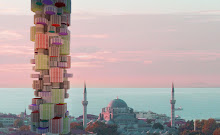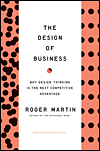Story Number 1: Asian Neverland
Chinese developers have decided to commemorate the late Michael Jackson by building a scaled down Neverland Ranch on Chongming Island off the coast of Shanghai. The Asian Neverland will be 1/17 of the 2,800 acres of the original property and will cost an estimated $15 million. Additionally, in deference to its alternate location, the Asian Neverland will have "Chinese characteristics" so that it blends in with the local environment. In the investors in the project are hoping that it will be com pleted in time for Shanghai's 2010 World Expo.
pleted in time for Shanghai's 2010 World Expo. Hmm...Nevertheland on the left, and a Chinese temple on the right... yeah...I don't think so.
Hmm...Nevertheland on the left, and a Chinese temple on the right... yeah...I don't think so.
7.24.2009
When Globalization Goes Horribly Awry
7.21.2009
Lists and Rankings of Cities Galore but Who Really Cares?
Every week one million people move to new cities around the world - according to consulting firm A.T. Kearney and Foreign Policy magazine.
That is 1,000,000 people every week!
How do these people decide where to move? What influences their decision?

I am always amazed and fascinated with the number of studies done on cities - rankings that evaluate every city on a whole host of categories ranging from the more serious criteria like their population, their cultural industries and offerings, the environment or their economic vitality to the more frivolous. Many of these lists often serve as fodder for conversations at the next cocktail party - best cities to meet men, best cities to meet women, best cities to buy a house, cities with the worst traffic, cities with the worst air quality, and so on. Most of these studies are undertaken by management consulting firms, research based publications, or more entertainment driven magazines.
With all the time, financial investment and (wo)manpower that goes into developing and researching these lists - does it actually influence anyone's decisions? As a young professional, an expat kid and a life long nomad and a lover of cities, not just as a traveler but also as a scholar, I have my own criteria for selecting cities for which to relocate. And more often than not these lists while sometimes idealistic and hopeful are usually irrelevant to my decision-making.
These lists however, always leave me puzzled. If Zurich is the world's most livable city, why does it only have a tiny population of approximately 375,000? Don't get me wrong, I love Zurich. It is an incredibly beautiful city but not a very diverse or inclusive city. Even Tyler Brûlé who is constantly touting all the fine qualities of Zurich survived there on his own admission only a year. Meanwhile he continues to make his home in London. Likewise, metro Vancouver has a mere approximate population of 615,473. For the past year, I have been desperately campaigning for my sister to move to Vancouver - and she is all for it - if she can find the right opportunity.
Unfortunately, livability has nothing to do with opportunities. In 2008, Foreign Policy Magazine, The Chicago Council on Global Affairs and A.T. Kearney did a ranking of the top global cities. They ranked cities based on business activity, human capital, information exchange, cultural experience and political engagement. Only five of the cities (Paris, Tokyo, Toronto, Sydney and Vienna) that made the top 20 of the global cities' list were on either Monocle's or EUI's livability list.
Nevertheless, millions of people from around the world continue to converge on mega cities like New York, London, Shanghai, Tokyo and Mumbai because they are dynamic and flush with opportunities and possibilities and influence the direction of the global agenda and economy. Successful businesses congregate and influential and creative people tend to cluster where there are others of like-mind and vision. Daily living in New York City for example is tough work. Traffic is horrid, subways are congested, hot and sticky, shoe boxes are larger than most apartments but there are very few cities in the world, where you have as much access to diverse populations, businesses, institutions, culture, food and ideas. As exhausting as it sometimes gets, the electricity and buzz in the air is addictive.

And so a list I would like to see is a ranking of the livability of global cities that are rife with opportunities, diversity, culture attractions, and intellectual vigor. I would like to see mega cities which are often not the most comfortable cities to reside in trade best practices on improving the quality of life; especially since so many up and coming global cities around the world look to New York and London as their guidepost - often following their examples blindly and that means their successes and mistakes. Does livability and opportunity have to be on opposite sides of the spectrum when it comes to city planning? What a novel idea to have a city that does not always have to sacrifice one for the other.
*Bottom two photographs are from the 2007 Global Cities exhibition at the Tate Modern in London.























